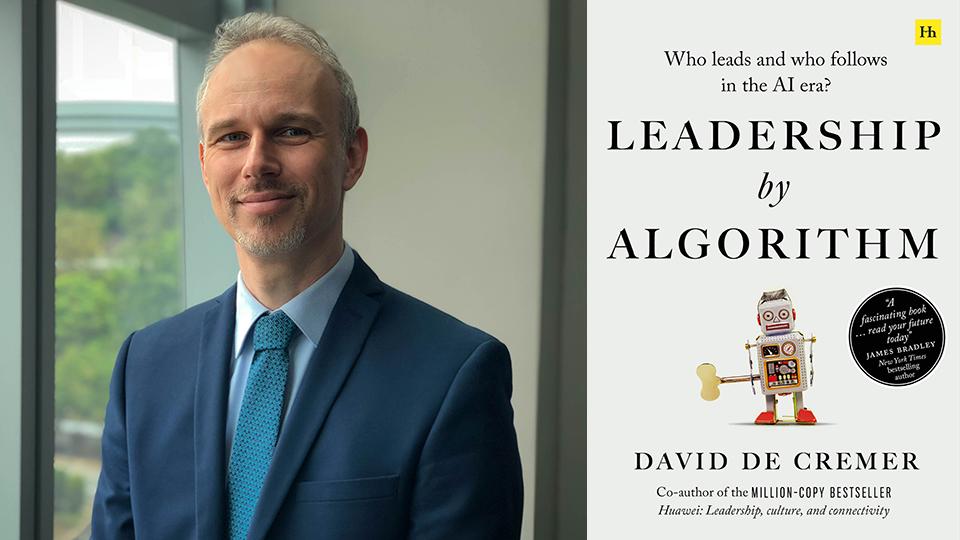NUS Business professor launches book on leadership and algorithms
Artificial intelligence (AI) has permeated many aspects of our lives. In the business world, AI has taken on a larger role, moving gradually from being a tool and advisor to becoming a decision-maker and even manager. How will this kind of AI adoption and implementation impact how leaders navigate their companies? How should leaders optimise AI implementation to make human-centred decisions?
NUS Business Professor David De Cremer, Provost’s Chair in the Department of Management and Organisation, addresses these questions in his new book Leadership by Algorithm: Who leads and who follows in the AI era?
Prof De Cremer, who is the Founder and Director of the NUS Business Centre on AI Technology for Humankind, said that the almost unlimited potential of AI is making many people, including business leaders, dream of a more optimally functioning society.
”However, the reality is that most companies are not that effective in making the right business cases for the use of AI in such ways that the organisation is run in better and more humane ways. So, on the one hand the business world is making itself more dependent on this new technology, whereas on the other hand, the decisions taken are not necessarily promoting the values we would like to see in our organisations,” he added.
In a virtual book launch, Prof De Cremer spoke on why focusing on AI technologies is a necessity for companies to adapt and stay competitive in the 21st century. He was joined by Mr Jamie Anderson, named as one of the top management thinkers by The Financial Times and Business Strategy Review; Ms Carolyn Chin-Parry, IT Woman of The Year, Asia, 2019; and Mr Alexandros Papaspyridis, Director, Higher Education, Microsoft Asia Pacific Japan. The panellists asked several questions on whether AI can become an autonomous creative decision-maker, how AI can drive innovation strategies and the function that AI will play within organisations.
Prof De Cremer believed that there was a need for a book that outlined both the potential and limitations of AI when it came to actually leading an organisation in the 21st century. “The conclusion is that repetitive and routine tasks will quickly become automated, but there are clear boundaries where at one point in the decision-making process our unique human skills will always be needed to give meaning and purpose to the decisions that we make. It’s at that point that leadership starts and at business schools we need to pick up that challenge when training our future leaders and identifying their role in how they will have to cooperate with AI,” said Prof De Cremer.
The book has received praise from business paper The Financial Times, was included in management guru Adam Grant’s list of 15 summer reads on leadership, and the Kindle version has topped the charts of Amazon in the AI & Semantics category.

